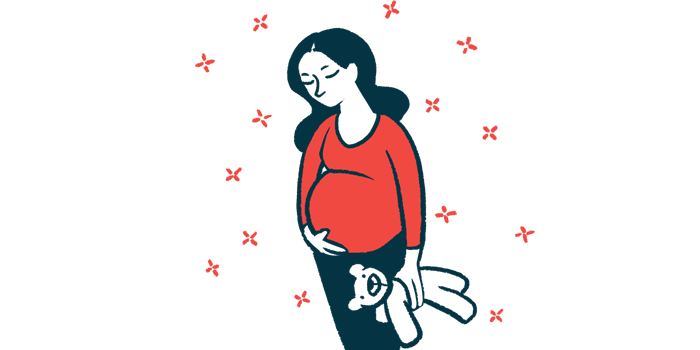Premature birth, congenital heart block risks with Sjogren’s: Study
Early detection, counseling may improve outcomes
Written by |

Women with primary Sjögren’s syndrome are more likely to give birth prematurely and have babies born with congenital heart block (CHB) — a condition that disrupts the transmission of electrical signals within the heart needed to maintain a normal heartbeat — than women with other autoimmune conditions, a study found.
Patients with the syndrome “should undergo a thorough evaluation for disease activity and potential risks to the health of the mother and fetus before considering pregnancy,” the researchers said.
The study, “Fetal and Maternal Outcomes in a Cohort of Patients With Primary Sjogren’s Syndrome: An Observational Study,” was published in Cureus.
Sjögren’s syndrome is an autoimmune disorder that primarily affects the tear and salivary glands, leading to the hallmark symptoms of eye and mouth dryness. It may be primary, when it appears isolated, or secondary, if it is associated with another underlying disease such as lupus or rheumatoid arthritis. Sjögren’s is also characterized by the presence of self-reactive antibodies, most commonly anti-Ro and anti-La antibodies.
Pregnant women with Sjögren’s are more likely to experience maternal and fetal complications, including premature birth, low birth-weight babies and fetal problems. One of the most serious of these is CHB, which is caused by self-reactive antibodies crossing the placenta to the fetus.
Analysis of 16 pregnancies
To address the impact of primary Sjögren’s on pregnancy in the Indian population, researchers at the Amrita Institute of Medical Sciences conducted a retrospective analysis of maternal and fetal outcomes in women who had been treated at their care center between 2011 and 2020. Data from 16 pregnancies in 10 women with primary Sjögren’s were included in the analysis.
Out of 10 live births, eight babies were born full term, while two were born prematurely, or before 37 weeks of pregnancy. There were two stillbirths and four pregnancies that were medically terminated.
In five pregnancies, there were lower-than-normal amounts of amniotic fluid, the liquid that surrounds the baby in the womb. Intrauterine fetal growth restriction, which is when an unborn baby is smaller than expected for the number of weeks of pregnancy, was seen in two pregnancies.
There was a tendency for a higher incidence of premature births in women with primary Sjögren’s compared with those with other autoimmune diseases, including lupus and rheumatoid arthritis. Babies born to women with Sjögren’s had a mean weight of 2.3 kg (about five pounds) at birth and required neonatal intensive care for a mean of seven days.
Fetal echocardiograms performed on 12 babies showed that six of them had complete CHB, meaning electric signals couldn’t pass from the heart’s upper chambers to the lower ones. One of the babies had an incomplete heart block, meaning some electric signals could still pass from the heart’s upper chambers to the lower ones.
One of the babies needed a pacemaker, a small device placed surgically to help regulate heartbeat.
The incidence of heart block was significantly higher in babies born to mothers with primary Sjögren’s than in those with mothers who had lupus or rheumatoid arthritis (58.3% vs. 7.2%).
Ten pregnant women with Sjögren’s received hydroxychloroquine (62.5%), while five were treated with corticosteroids (31.3%), and four with azathioprine (25%). The medications were taken either individually or in combination based on body weight.
“Poor control of disease activity, low prevalence, and lack of awareness of complications for [Sjögren’s syndrome] in Indian patients prevent physicians from diagnosing the disease early and controlling the severity of disease activity before planning pregnancy,” the researchers wrote.
They noted that disease activity should be controlled for at least six months before pregnancy and that certain immunosuppressive medications should be avoided. Pregnancy-safe immunosuppressants, such as azathioprine, cyclosporine, and tacrolimus, are preferred, while corticosteroids, which have been associated with adverse pregnancy outcomes, should be used at lower doses, they said.
“Early detection, pre-conceptional counseling, and proper workup by a multidisciplinary approach may improve the outcome in such patients,” the researchers wrote.






